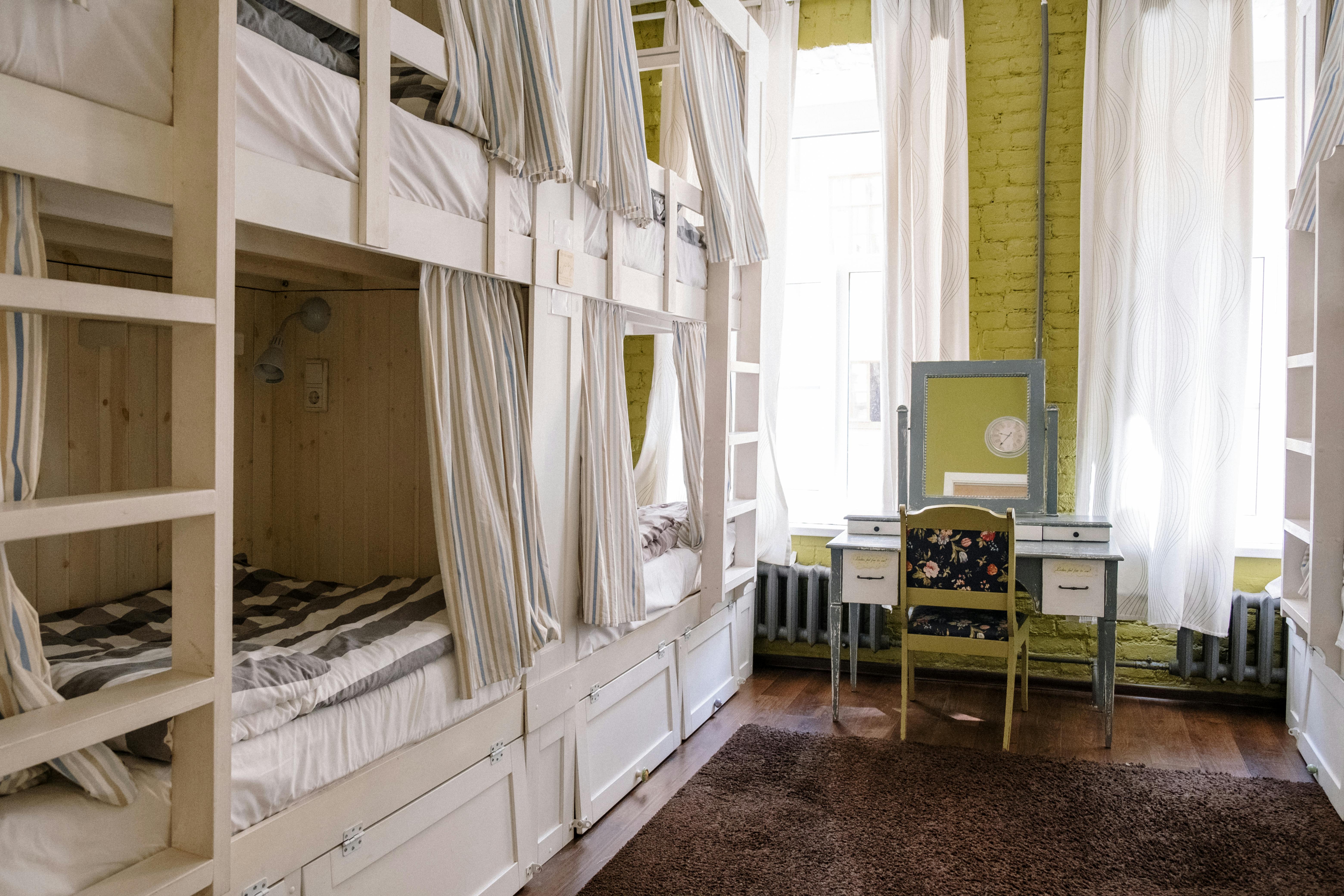How to Apply for University Accommodation in the UK
Securing accommodation is one of the essential steps for students planning to study in the UK. It not only ensures a place to live but also contributes significantly to the overall university experience. This guide will take you through the step-by-step process of applying for university accommodation in the UK, ensuring you have all the information you need to make an informed decision and a smooth application process.
Understanding University Accommodation Options
Types of Accommodation
- University Halls of Residence: These are managed by the university and often provide the most integrated student experience. They can be either catered or self-catered and typically include utilities in the rent.
- Private Halls: Managed by private companies, these halls offer similar facilities to university-managed halls but may vary in price and amenities.
- Shared Houses/Flats: This option involves renting a room in a house or flat shared with other students. These are often managed by private landlords or letting agents.
- Homestay: Living with a local family can be an enriching experience, providing cultural immersion and a home-like environment.
Choosing the Right Accommodation
Consider the following factors when selecting your accommodation:
- Budget: Determine how much you can afford, including rent and other living expenses.
- Location: Proximity to the university and local amenities is crucial.
- Facilities: Check what is included, such as laundry facilities, internet access, and communal areas.
- Social Environment: Decide if you prefer a quiet environment or a more social setting.

Preparing for the Application
Research
Start by researching the accommodation options available at your chosen university. Most universities provide detailed information on their websites, including types of rooms, prices, and facilities. Make a list of your preferences and priorities.
Application Deadlines
Be aware of the application deadlines for university accommodation. These can vary between universities and types of accommodation. Missing a deadline can significantly reduce your chances of securing your preferred accommodation.
Eligibility Criteria
Check if there are any eligibility criteria for the accommodation you are interested in. Some universities prioritize first-year students or international students, while others may have specific requirements for certain types of accommodation.
The Application Process
Step 1: Receive Your University Offer
Before you can apply for accommodation, you must have a confirmed offer from your chosen university. This can be either an unconditional or conditional offer. Make sure to accept your offer through UCAS or directly with the university.
Step 2: Create an Online Account
Most universities require you to apply for accommodation through an online portal. You will need to create an account using your student ID or application number. This portal will be used to manage your application and receive updates.

Step 3: Complete the Application Form
Fill out the application form with accurate and detailed information. You will need to provide:
- Personal details (name, date of birth, contact information)
- Course details (course name, start date, duration)
- Accommodation preferences (type of room, location, budget)
Step 4: State Your Preferences
Universities usually allow you to state your accommodation preferences. List your top choices in order of preference, providing reasons for your selections if required. Be realistic about your chances of getting your first choice and be prepared to consider alternatives.
Step 5: Submit Supporting Documents
Some universities may require additional documentation, such as proof of student status, a copy of your offer letter, or financial information. Ensure you submit all required documents by the specified deadline.
Step 6: Pay the Application Fee
An application fee may be required to process your accommodation request. This fee varies between institutions, so check the specific requirements of your university. Payment is typically made online through the accommodation portal.

Post-Application Process
Confirmation of Application
Once your application is submitted, you will receive a confirmation email. This email will contain important information, including your application reference number and next steps.
Allocation of Accommodation
Universities usually allocate accommodation based on the preferences stated in your application. This process can take several weeks, and you will be notified of the outcome via email or through the accommodation portal.
Accepting the Offer
If you receive an offer of accommodation, you will need to accept it within a specified timeframe. Read the terms and conditions carefully before accepting. If you are not satisfied with the offer, you may have the option to request a change, but this is subject to availability.
Deposit Payment
Upon accepting the offer, you will be required to pay a deposit to secure your accommodation. The deposit amount varies but is typically equivalent to a few weeks’ rent. This deposit is usually refundable at the end of your tenancy, provided there are no damages or outstanding fees.
Moving In
Preparing for Arrival
Start planning for your move as soon as you have accepted your accommodation offer. Check the university’s website for information on what to bring, move-in dates, and orientation activities.
Packing Essentials
Prepare a packing list to ensure you have everything you need for your new home. Essential items include:
- Bedding (duvet, pillows, sheets)
- Kitchenware (pots, pans, utensils)
- Toiletries (towels, soap, shampoo)
- Study materials (laptop, stationery)
- Personal items (clothing, photos, decorations)

Travel Arrangements
Arrange your travel to the university in advance. Consider the best mode of transportation and book tickets if necessary. If you are traveling from overseas, check visa requirements and travel restrictions.
Move-In Day
On move-in day, arrive early to avoid crowds and secure parking if needed. University staff and student volunteers are usually available to help with the move-in process and provide information.
Settling In
Orientation Activities
Participate in orientation activities organized by the university. These activities are designed to help you settle in, meet new people, and familiarize yourself with the campus and local area.
Meeting Your Flatmates
Getting to know your flatmates is an important part of the university experience. Introduce yourself, be open and friendly, and establish ground rules for shared living spaces.
Registering with Local Services
Register with a local doctor and dentist as soon as possible. Familiarize yourself with the nearest grocery stores, banks, and other essential services.
Tips for a Smooth Accommodation Experience
Communication
Maintain open communication with your flatmates and university accommodation staff. Address any issues promptly to avoid conflicts.
Budgeting
Manage your finances carefully. Create a budget to track your expenses and ensure you can cover your rent and other living costs.
Staying Safe
Follow university guidelines for safety and security. Keep your room and shared areas locked, and be aware of emergency procedures.
Getting Involved
Engage in campus activities and join student societies to make the most of your university experience. This is a great way to meet new people and develop new skills.

Dealing with Issues
Maintenance Problems
Report any maintenance issues to the accommodation office as soon as possible. Most universities have a system in place for handling repairs and maintenance requests.
Room Transfers
If you encounter significant issues with your accommodation or flatmates, you may request a room transfer. This process can vary, so check your university’s policies and procedures.
Contract Termination
Understand the terms of your accommodation contract, including the process for early termination. If you need to leave your accommodation before the end of your contract, you may be required to find a replacement tenant or pay a fee.
Applying for university accommodation in the UK is a structured process that requires careful planning and timely action. By understanding your options, meeting deadlines, and following the application steps, you can secure a comfortable and convenient place to live during your studies. Remember to make the most of your accommodation experience by getting involved in campus life and maintaining a positive living environment. Good luck with your application and enjoy your time at university!


